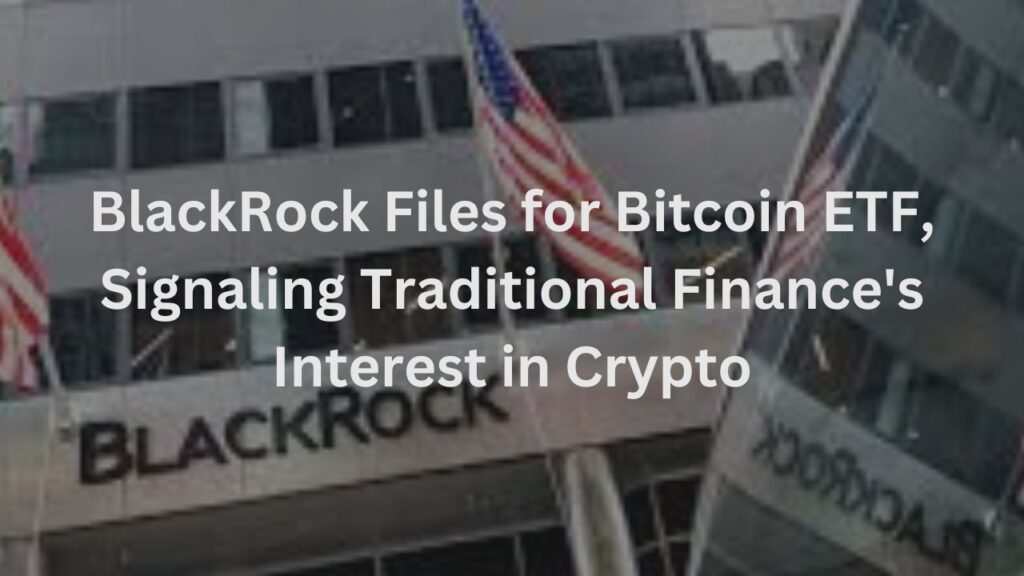
In the dynamic world of cryptocurrencies, several significant developments are unfolding, potentially shaping the future of the market.
In this article, we look at recent developments in Bitcoin, Ethereum, and other cryptocurrencies as well as an intriguing development involving BlackRock, a significant player in the financial industry, filing for a Bitcoin exchange-traded fund (ETF).
While Ethereum has grown by 2.2% as of the time this article was written, Bitcoin has only increased by a meager 1.5%.
However, the overall market remains relatively stable, with some coins showcasing mixed performance.
XRP has declined by 2%, Tron by 1%, and Polygon by 3%.
Shiba Inu has risen by 1.5%, while Litecoin has increased by 2%.
The most noteworthy news in the crypto sphere revolves around BlackRock’s recent filing for a Bitcoin ETF.
BlackRock, one of the largest financial organizations on the planet, has a staggering market cap of $10 trillion.
Their move signals a growing interest from traditional finance in the realm of cryptocurrencies.
BlackRock seeks approval from the Securities and Exchange Commission (SEC) to introduce the ETF.
While previous Bitcoin ETF proposals have been met with denials, there is optimism that BlackRock’s credibility and trustworthiness may sway the SEC in their favor.
If BlackRock’s Bitcoin ETF receives approval, it could have significant positive implications for the crypto market.
The availability of such an investment vehicle would grant more traditional stock market investors the opportunity to engage with Bitcoin, further driving its adoption.
However, some experts approach this development cautiously, perceiving it as a sign that traditional finance aims to exert control and influence over the crypto industry.
The involvement of major players like BlackRock, JP Morgan, Goldman Sachs, and Citadel in the crypto space suggests a hidden agenda of consolidating power over digital assets.
One prominent analyst, Miles, has shed light on this hidden agenda through his Twitter account.
He highlights how traditional finance companies, envious of the substantial returns generated by crypto startups, are employing regulatory measures like “Operation Choke Point 2.0” to regain control and eliminate competition.
The ongoing SEC actions against prominent crypto exchanges such as Coinbase and Binance, coupled with BlackRock’s ETF filing, appear to align with this broader narrative.
Understanding the larger landscape of traditional finance’s interest in crypto and its potential implications is crucial for crypto enthusiasts and investors alike.
Engaging in open discussions, sharing opinions, and closely monitoring developments in both the crypto market and the regulatory arena is essential.
It is clear that traditional financial institutions are becoming interested in cryptocurrencies as the cryptocurrency market continues to develop.
Whether this interest brings about positive or negative outcomes for the crypto industry remains uncertain.
The landscape of digital assets will undoubtedly change over the coming years as traditional finance and cryptocurrencies continue to develop their relationship.
